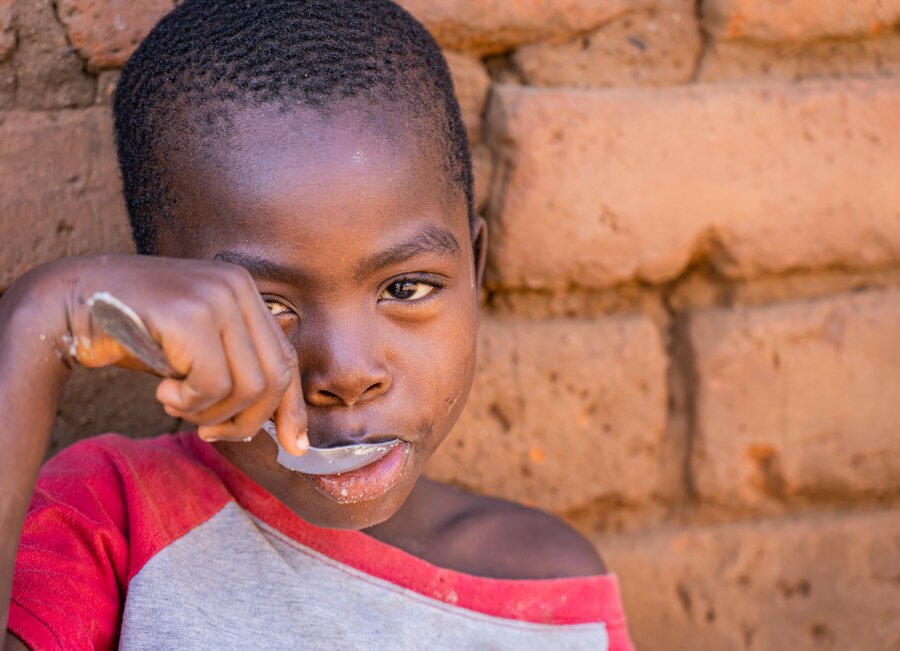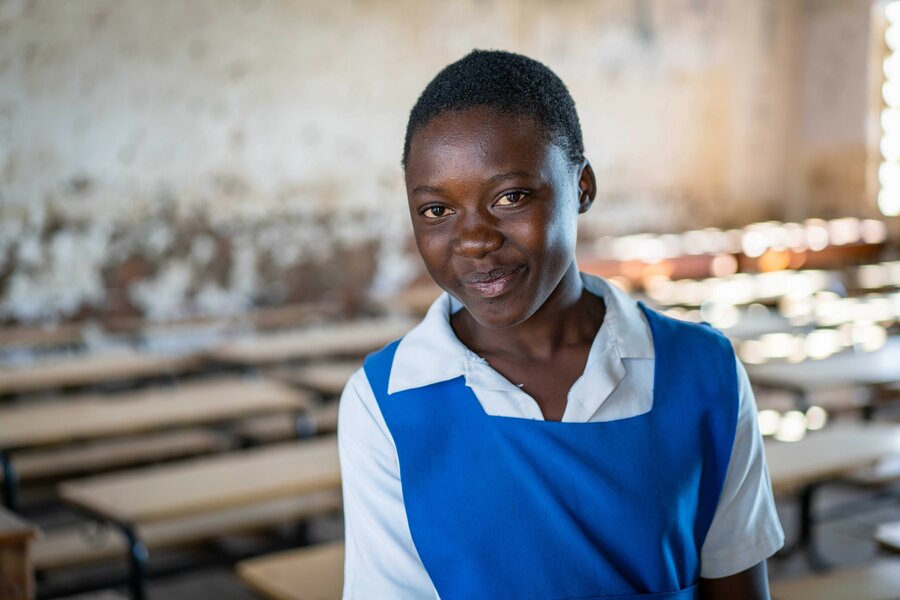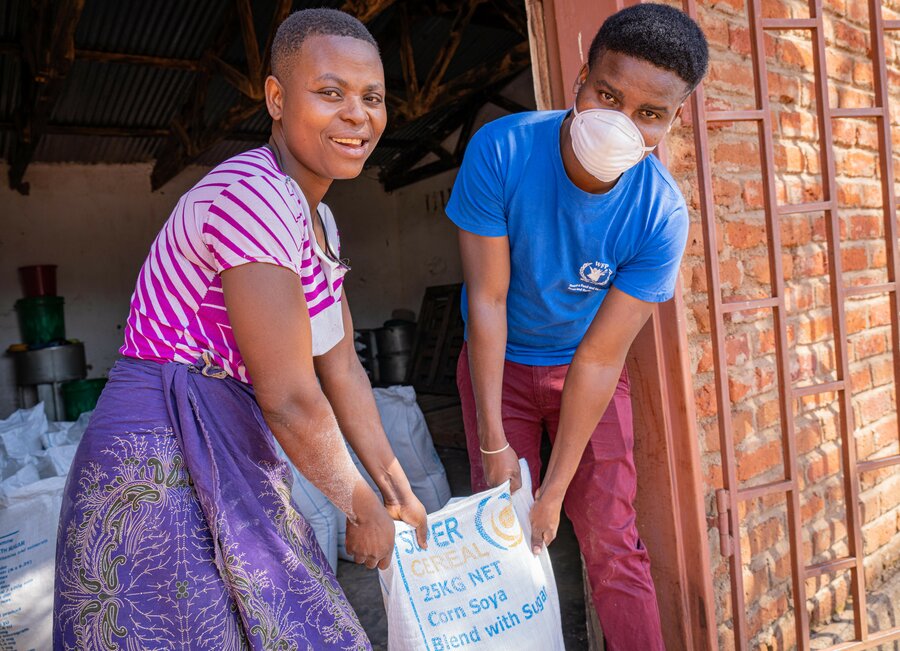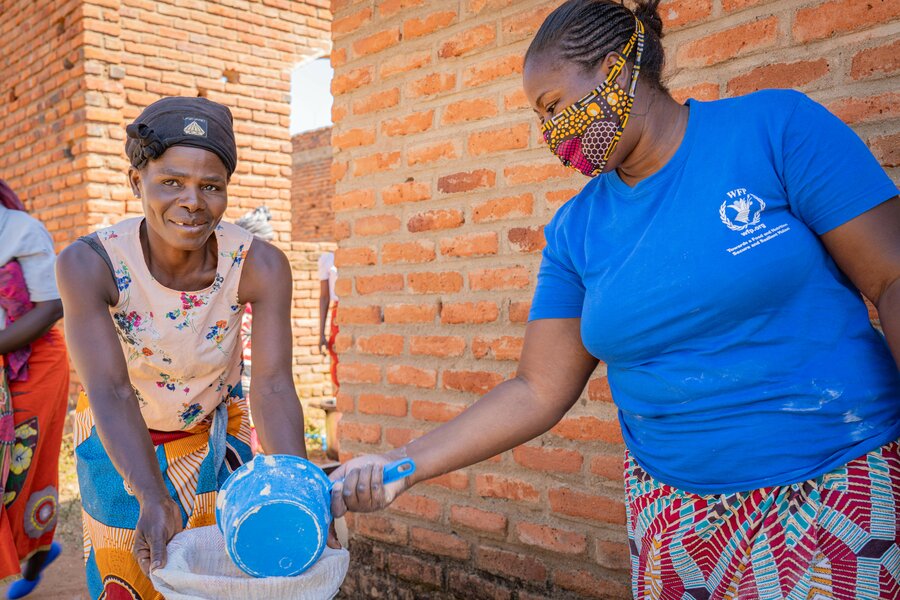Malawi: ‘My biggest fear is coronavirus will keep the school closed’

"I miss school and my friends, I also miss the school breakfast," says 10-year-old Godfrey Chimala. "I want to go back to school."
Learners at Nyambwe primary, in Zomba district, are among more than 5.3 million children in Malawi currently missing out on their education because of coronavirus-related school closures.
Only five in 100 people have access to information communication technology (ICT) services in the country, due to the low reach of service providers — rural areas are particularly poorly served.
This makes distance learning almost impossible, particularly for learners in rural areas.
Thanks to radio and television programmes and home delivery of offline teaching and learning materials, distance learning is being made possible for some pupils without access to technology.
"My biggest fear is that the virus will keep the school closed and I won't be able to finish my education," says 13-year-old Isabel Deck of the Chimbiya Primary School in Dedza District. "With school closure, I miss school meals, sports and the health counselling sessions we used to get from mother groups after school."

To avoid the pandemic becoming a hunger calamity for schoolchildren, the World Food Programme (WFP) is working with the Government of Malawi to provide take-home rations in the form of food and cash so that 600,000 vulnerable children continue to receive their meals at home. Parents collect food rations on behalf of their children.
"When school was open, my children would happily go, knowing they would eat breakfast there — they love the morning porridge," says Joyce Neleche, a single mother of five, in Phalombe District. She adds: "Keeping them at home means more expenses for me. I can't afford to feed them every morning so at times there is nothing to feed them. The porridge flour I've received today will lessen the food deficit for my family and will keep my children strong."

WFP's school feeding programme has been successfully implemented in partnership with the Government in the most food-insecure districts of Malawi since 1999. Before the COVID-19 related school closures, the school meals programme was providing school meals to 611,000 children in 450 schools across the country. Take-home rations are now reaching all vulnerable learners in the targeted schools thanks to the financial support of the governments of Iceland, Norway and the Mastercard Foundation.

Distributions of take-home rations are done in compliance with Government guidelines on coronavirus precautions and WFP's own high standards.
"My work usually involves close interactions with the communities and beneficiaries, " says Verepi Madise, WFP Monitoring Assistant in Zomba district. "With the pandemic, interactions have been minimal, and I collect information by phone, which is problematic due to network issues in the community. And considering that our beneficiaries are in the rural setting, online communication is not an option for them," she adds.
"Adaptation has not been easy because we are all getting used to the new norm, carrying sanitizers everywhere we go, wearing masks, providing hand-washing facilities and awareness-raising among other measures."

Lovemore Ali, a Field Assistant in Mulanje District, says: "Under normal circumstances, 90 percent of my work is on the ground. With the restrictions, I am unable to frequently go to the field hence it's difficult to perform some of my tasks and duties from home".
Lovemore adds: "I have set a place in my house to do my office work isolated from family and other distractions — although this is not working perfectly as my kids are also not in schools now and they are a distraction."
